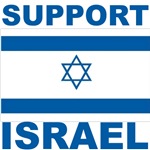Power, Politics, and 'the little guy(s)'
3 things of note in the world of power and politics which serve to illustrate the relationship between power, politics, and the lowly punter, the 'ordinary citizen.
First we have Ireland and Zimbabwe, and then a local example (ie NSW state politics, and an extension into federal (Australian) politics.
The first involves the electorate in Ireland. Seems the public voted 'NO' in a referendum on ratifying the Lisbon treaty for the EU. Some in the EU (and Ireland) want to have the referendum repeated (and it seems, would like to do so until they get the answer they want). This has renewed calls for a vote in Britain on the treaty, but the UK government is resisting that call (possibly because they would not get the result they want?).
There are 2 issues there, one the merits of the EU treaty, the other the issue of democratic choice 'by the people'.
The second example is that economic basket case of a failed state - Zimbabwe.
There was a recent election there for the presidency - widely viewed as rigged. Now there is a run-off election scheduled. which few observers expect to be fair.
Makes you wonder how such a regime can claim legitimacy. Also makes you wonder why the rest of the world lets it happen. (And there are other examples for that - Burma and Nth Korea for example).
The third example we have an Australian couple, husband/wife, the husband being a NSW minister (for education), and the wife being a federal MP. Seems they had 'some words' with the staff of an establishment. Whatever happened, it has become a case of 'the little guys' vs the powerful and well connected. But the little guys aren't backing down. More.
Each example illustrates why 'the little guys' collectively, need to have the means, the institutions (and faith in those institutions) to curb arbitrary and capricious exercise of power.
This is why I believe in the tools of direct democracy - Initiative, Referendum, and Recall.
And in the case of places like Zimbabwe, have not the people there suffered past the point where more direct action on their part against an illegitimate regime is their moral right?
First we have Ireland and Zimbabwe, and then a local example (ie NSW state politics, and an extension into federal (Australian) politics.
The first involves the electorate in Ireland. Seems the public voted 'NO' in a referendum on ratifying the Lisbon treaty for the EU. Some in the EU (and Ireland) want to have the referendum repeated (and it seems, would like to do so until they get the answer they want). This has renewed calls for a vote in Britain on the treaty, but the UK government is resisting that call (possibly because they would not get the result they want?).
There are 2 issues there, one the merits of the EU treaty, the other the issue of democratic choice 'by the people'.
The second example is that economic basket case of a failed state - Zimbabwe.
There was a recent election there for the presidency - widely viewed as rigged. Now there is a run-off election scheduled. which few observers expect to be fair.
Makes you wonder how such a regime can claim legitimacy. Also makes you wonder why the rest of the world lets it happen. (And there are other examples for that - Burma and Nth Korea for example).
The third example we have an Australian couple, husband/wife, the husband being a NSW minister (for education), and the wife being a federal MP. Seems they had 'some words' with the staff of an establishment. Whatever happened, it has become a case of 'the little guys' vs the powerful and well connected. But the little guys aren't backing down. More.
Each example illustrates why 'the little guys' collectively, need to have the means, the institutions (and faith in those institutions) to curb arbitrary and capricious exercise of power.
This is why I believe in the tools of direct democracy - Initiative, Referendum, and Recall.
And in the case of places like Zimbabwe, have not the people there suffered past the point where more direct action on their part against an illegitimate regime is their moral right?
Labels: human rights, politics, Zimbabwe








0 Comments:
Post a Comment
<< Home